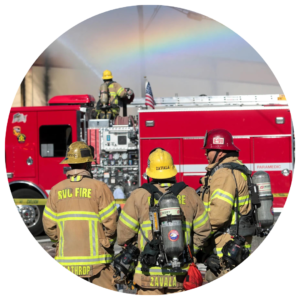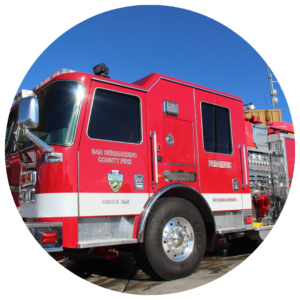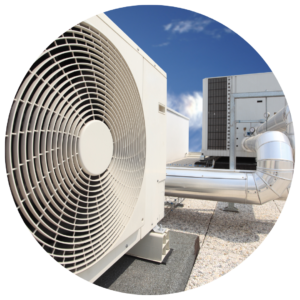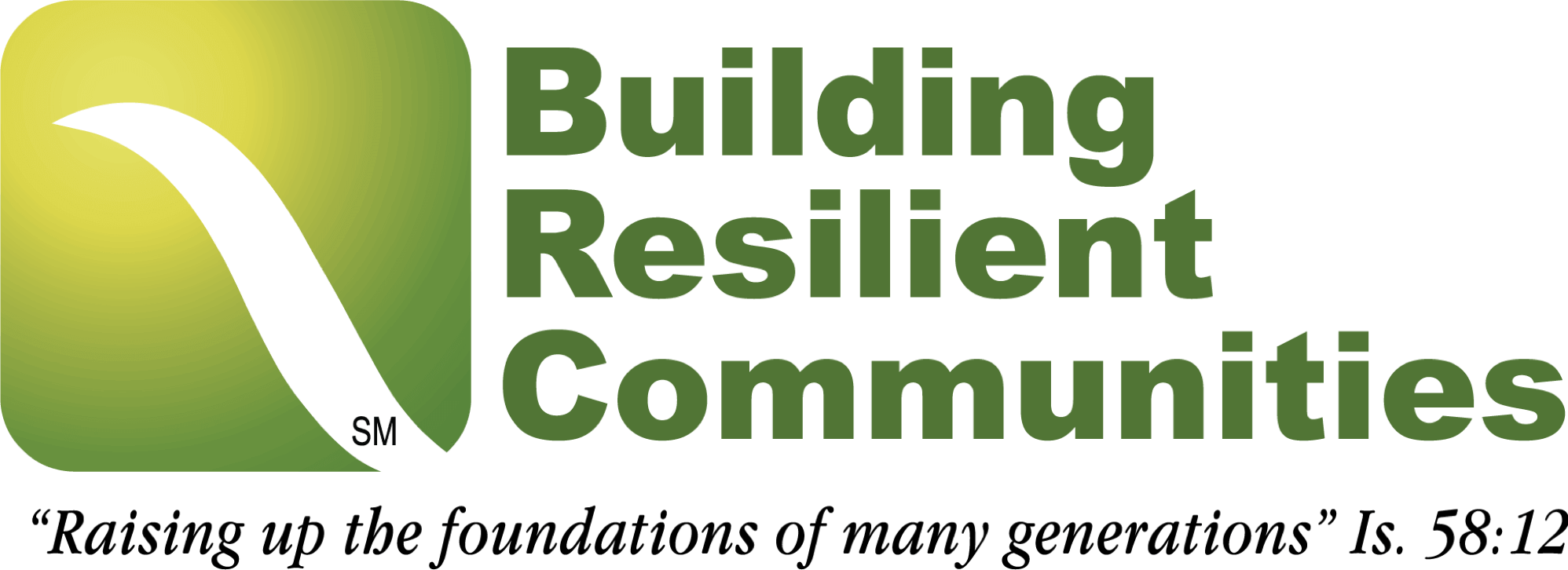Emergency Preparedness
Need to prepare your church or organization? Check out our Are You Ready? Webinar!
Home Fire
If a fire breaks out in your home, you may have as little as two minutes to escape. That is why it is important to know how to prevent home fires, prepare a fire escape plan, and practice that plan regularly.
Practice Fire-Safe Habits
- Install smoke alarms on every level of your home and outside every sleeping area.
- Install a carbon monoxide alarm in a central location outside each separate sleeping area.
- Make sure your home heating sources are clean and in working order. Many home fires are started by poorly maintained furnaces or stoves, cracked or rusted furnace parts, or chimneys with creosote buildup.
- Check electrical wiring in your home:
- Fix or replace frayed extension cords, exposed wires, or loose plugs.
- Make sure wiring is not under rugs, attached by nails, or in high traffic areas.
- Make sure electrical outlets have cover plates and no exposed wiring.
- Avoid overloading outlets or extension cords.
- Purchase only appliances and electrical devices (including space heaters) that bear the label of an independent testing laboratory.
- Store combustible materials in open areas away from heat sources. Place rags used to apply flammable household chemicals in metal containers with tight-fitting lids.
- Keep items space heaters at least three feet away from anything that gets hot.
- If you smoke:
- Smoke outside, choose fire-safe cigarettes; use deep, sturdy ashtrays, and douse cigarette butts with water before disposing of them.
- Never smoke in bed, when drowsy or medicated, or if anyone in the home is using oxygen.
- Keep matches and lighters out of reach of children.
- Turn off portable heaters off when you leave the room or go to sleep.
- If the power is out do not use candles. Use flashlights instead.
- Never leave a burning candle unattended.
In Your Kitchen
- Stay in the kitchen when frying, grilling, or broiling food. Stay in the home while simmering, baking, roasting, or boiling food.
- Keep pets off cooking surfaces and countertops.
- Keep the stove area clean and clear of things that can catch fire, such as pot holders, towels, curtains, bags, and other appliances.
- If you are cooking and a fire starts in a pan, slide a lid over the burning pan and turn off the burner. Leave the lid in place until the pan is completely cool. Moving the pan can cause serious injury or spread the fire. NEVER POUR WATER ON A GREASE FIRE.
- Install smoke alarms in your home and test them once a month. Be sure to replace the batteries annually.
- Teach your children what smoke alarms sound like and what to do when they hear one.
- Make sure that every member of your household knows two ways to escape from every room of your home.
- Establish a family meeting spot outside of your home.
- Create an emergency communication plan and make sure that everyone knows who to call if they cannot reach each other.
- Run a home fire drill at least twice a year. Use the smoke alarm test button or yell “Fire” to alert everyone that they must get out.
- Make sure everyone knows how to call 9-1-1.
- Teach household members to STOP, DROP, and ROLL if their clothes catch on fire.
Checking Your Home
- Check the outside of your home before you enter. Look for loose power lines, broken or damaged gas lines, foundation cracks, missing support beams or other damage. Damage on the outside can indicate a serious problem inside. Ask a building inspector or contractor to check the structure before you enter.
- Stay out of any building that has water around it.
- Keep away from loose or dangling power lines. Report them immediately to the power company.
- Contact your insurance agent. Do not discard damaged goods until an inventory has been taken. Save receipts for money spent relating to fire loss. Your insurance agent may provide immediate help with living expenses until you are able to return home and may offer assistance for repairs.
- If the door is jammed, don’t force it open – it may be providing support to the rest of your home. Find another way to get inside.
- Sniff for gas. If you detect natural or propane gas, or hear a hissing noise, leave the property immediately and get well away from it. Call the fire department after you reach safety.
- If you have a propane tank system, turn off all valves and contact a propane supplier to check the system out before you use it again.
- Check for smoke and embers throughout the home, including the attic.
Cleaning Up and Removing Smoke Odor
- Wear protective clothing, including work gloves and heavy soled shoes.
- If drywall and insulation has been soaked by water from fire hoses, talk to a professional about getting it replaced. It can not be dried out and maintain structural integrity or resistance to mold and mildew.
- Look for products containing tri-sodium phosphate (TSP) as they can reduce odors in fabrics. TSP is caustic so be careful! Read the label for directions and safety instructions.
- Be sure to follow the manufacturer’s instructions when applying any treatment to garments. Clothing that can be bleached can sometimes be cleaned of smoke odors and soot. Measure 4 to 6 tbsp. tri-sodium phosphate and 1 cup household cleaner or chlorine bleach for every gallon of warm water you will use. Another option is to wash your clothes in cold water with your regular household detergent and one tablespoon of pure vanilla extract.
- To remove soot and smoke from walls, furniture and floors, use a mild soap or detergent or mix together 4 to 6 tbsp. tri-sodium phosphate and 1 cup household cleaner or chlorine bleach to every gallon of warm water. Wear rubber gloves. Be sure to rinse surfaces with clear warm water and dry thoroughly.
- Wash walls one small area at a time, working from the floor up to prevent streaking. Rinse with clear water immediately. Ceilings should be washed last. Do not repaint until walls and ceilings are completely dry. Reduce the chances of growth of mold and mildew by wiping down all surfaces that had gotten wet with a solution of one cup of liquid household bleach to a gallon of water. (Test surfaces to ensure that the bleach solution will not discolor these surfaces. To conduct this test, wipe a small area of the surface with the bleach solution, and allow it to dry at least 24 hours.)
- Washable wallpaper can be cleansed like painted walls, but do not wet through the paper. Use a commercial paste to repaste any loose edges or sections.
Visit the Red Cross website for more information on how to stay safe after a home fire.
Learn More About Emergency Preparedness in Your Area

Riverside County Fire Department
General Information
951-940-6900
Incident Information, Events, School Programs
951-940-6985

San Bernardino County Fire Department
Public Information Office
909-387-5950
CARE Team: Crisis Accountability Response Education
909-356-3805
Emergency Incident Information
909-355-8800
More Power Outage Resources
Southern California Edison
Report an Outage
1-800-611-1911
To operate a generator during a Maintenance Outage
1-888-759-6056, option 2
Rotating Outage Group information
1-800-611-1911
Maintenance Outage Updates
1-888-759-6056, option 1

Riverside County Cooling Centers
San Bernardino County Cooling Centers
Power Outage
Power outages can occur at anytime, but they are especially likely during extreme weather. Follow these tips to prepare.
- Sign up for text alert systems or apps specific to your area.
- Make a list of the essential items in your home that rely on electricity such as cell phones, medical devices, and refrigerated medicines.
- Plan for alternative power sources such as power banks and portable chargers. Be sure to check the charge on these items regularly to ensure that they are fully charged in an emergency.
- Have communication devices that do not need to be plugged in such as a crank or battery radio.
- Have enough flashlights for every member of your household.
- If a member of your household requires refrigerated medications, consider purchasing a cooler or portable mini fridge. Consult your medical provider to find out how long medication can be stored at a higher temperature.
- Make sure carbon monoxide detectors have battery back up.
- Have enough nonperishable food and water for each household member and pet. FEMA recommends a 3-day supply.
- Monitor alerts from local weather stations.
- Keep freezers and refrigerators closed.
- If you have a generator, only use it outdoors and at least 20 feet away from windows, doors, and attached garages.
- Do not use a gas stove or oven to heat your home.
- Do not use candles, instead use flashlights.
- Shutoff and unplug appliances and electronics to avoid damage from electrical surges.
- If it is extremely cold or hot during a blackout go to a community location until power is restored.
- Steer clear of downed power lines and anything they are touching. Call 911 and alert them to the problem.
- Don’t go into flooded areas or use any electrical equipment or electronics that may have been submerged in water.
- Have a qualified electrical inspector check the electrical system.
- If food is 40 degrees F or warmer, especially dairy and meat, throw it out.
- Ask your medical provider about using refrigerated medicines.
Join our mailing list for important updates and information.



